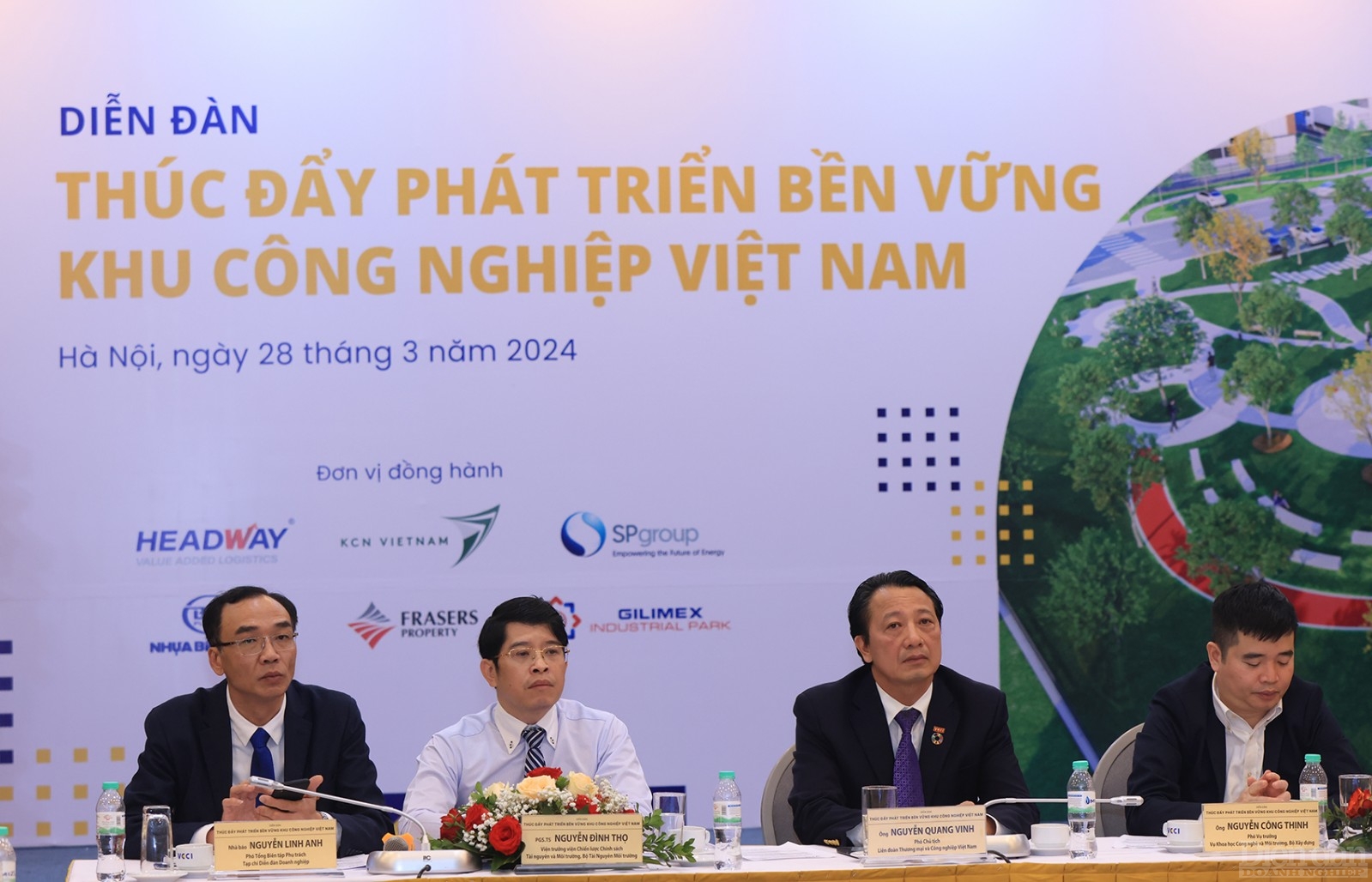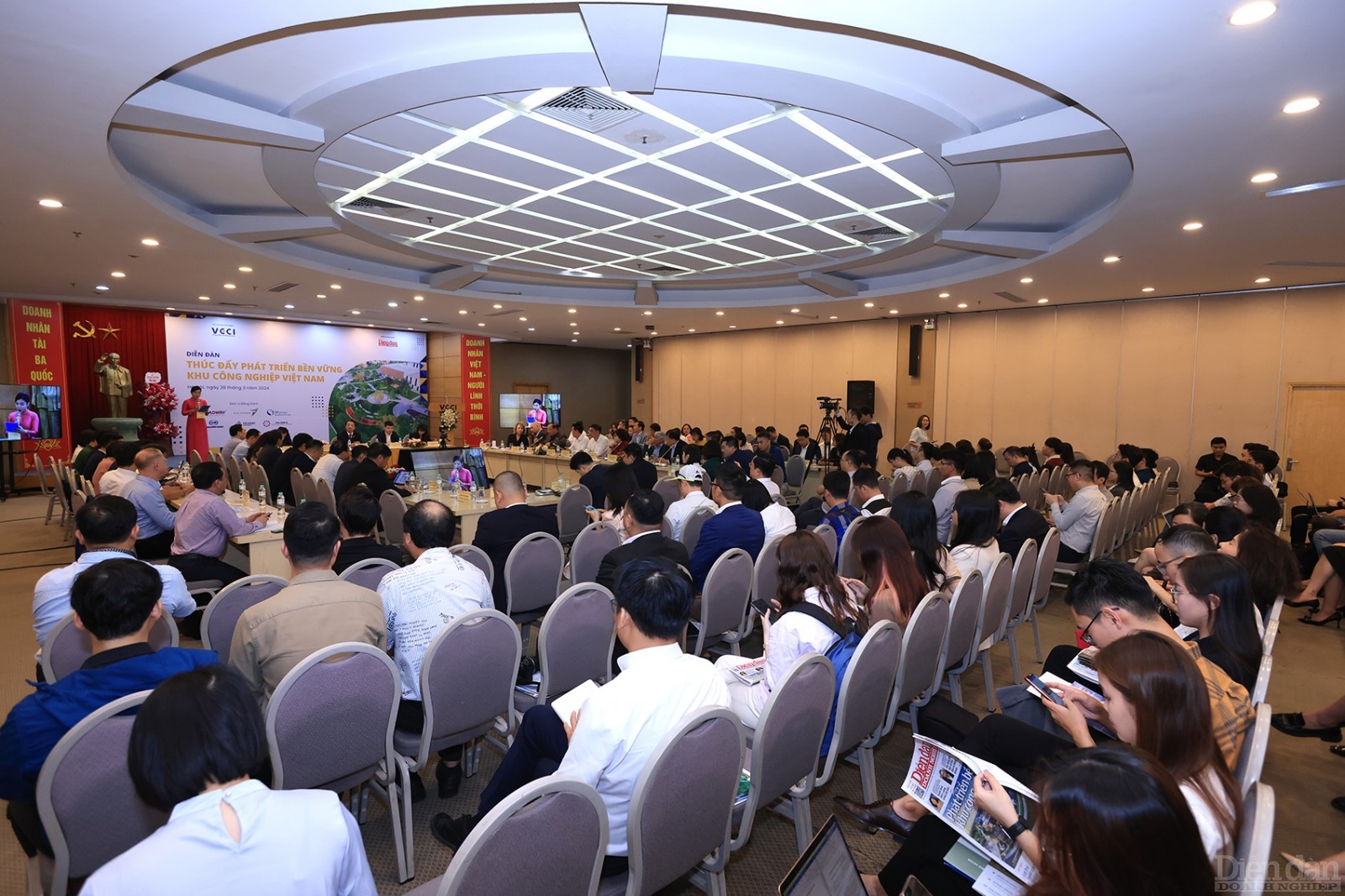Sustainable industrial zones: Recommendations for policy and action
The bottlenecks in the governance, policy-making, and cognitive components of industrial zones sustainable development serve as markers for suggested policies and courses of action.

Speaking at the Forum "Promoting sustainable development of Vietnam industrial zones," Nguyen Quang Vinh, Vice-President of the Vietnam Chamber of Commerce and Industry (VCCI), stated that the country has 418 industrial zones (IZs), with a total natural land area of about 129.9 thousand hectares. Of these, 371 IZs are located outside of economic zones, 39 IZs are in coastal export processing zones, and 8 IZs are in border-gate economic zones. A total of 89.2 thousand hectares were covered by industrial land.
Out of the IZs that have been established, 298 have been put into operation, covering a total area of approximately 92.2 thousand hectares of natural land, and an additional 63.1 thousand hectares of industrial land. Additionally, 120 IZs are currently under construction, with a total area of approximately 37.5 thousand hectares of natural land and an additional 26.1 thousand hectares of industrial land. The nation's entire leased industrial land area was approximately 51.3 thousand hectares, with an occupancy rate of roughly 57.5%.
Among the IZs that have started operating, the filling rate comes to roughly 72.5%. Of the 298 IZs that have been activated, 272 have already run centralized wastewater treatment plants that satisfy both the National Assembly's requirements and environmental norms (achieving a rate of approximately 91.3%).
Businesses in the industrial parks, according to Mr. Nguyen Quang Vinh, accounted for almost 50% of all exports from the nation, helping to turn Vietnam's trade balance from a trade deficit to a trade surplus and significantly boosting the country's budget revenue.
Nguyen Quang Vinh highlighted, "Participation in global production and supply chains, industrial parks and economic parks have made an important contribution to the development of enterprises, shifting economic structure to industrial production."
The VCCI Vice President claims that the aforementioned statistics demonstrate the critical role that IZ development has played in Vietnam's socioeconomic growth and that the IZs' sustainable growth will play in helping the country fulfill its commitment to becoming net zero by 2050, as well as in realizing its vision to 2050, the National Strategy for Green Growth 2021–2030, and many other important policies.
Furthermore, according to Mr. Nguyen Quang Vinh, in 2022, 118 IZs nationwide participated in a study on the state of IZs in the economic, environmental, social, and governance (EESG) framework using 19 primary benchmarks, which was carried out by the Vietnam Business Council for Sustainable Development (VBCSD-VCCI) and IDH Viet Nam.

The findings demonstrated the low adoption rate of EESG development policies: only 39% of the policies had risk management plans to guarantee environmental law compliance, 21% had social compliance risk management plans, 10% had circular economy promotion plans, and 13% had digital transition plans. Furthermore, little is known about sustainable development.
The results of the in-depth survey indicated that up to 50% of IZs have not heard of the concept of sustainable IZs, 30% have heard of ecological IZs concepts, and 20% have a comprehensive understanding of the EESG’s four pillars.
The survey also revealed that only 22% of IZs have international management system certification, notably, 77% have no corporate audit information on financial, social and environmental aspects.
“The results of the study also partly point to some “dismissal points” in the cognitive, policy-making, and governance aspects of IZs related to the sustainable development of IZs. These can also be indicators for policy and action recommendations to further strengthen the construction and operation of sustainable IZs in Vietnam,” VCCI Vice-President stressed.
In light of this, VCCI has also collaborated with pertinent organizations to develop the most significant collection of indicators, including the Corporate Sustainability Index (CSI), which was introduced in 2016. Businesses can use labor, social governance, and environmental indicators to get involved. They'll assess their sustainability. Over the past eight years, CSI has been recognized as an incredibly useful instrument, according to Nguyen Quang Vinh.
VCCI Vice President Nguyen Quang Vinh expressed the hope that the suggestions made at today's forum will help VCCI, experts, and relevant agencies launch new programs and efforts to support the sustainable growth of industrial parks in Vietnam.










